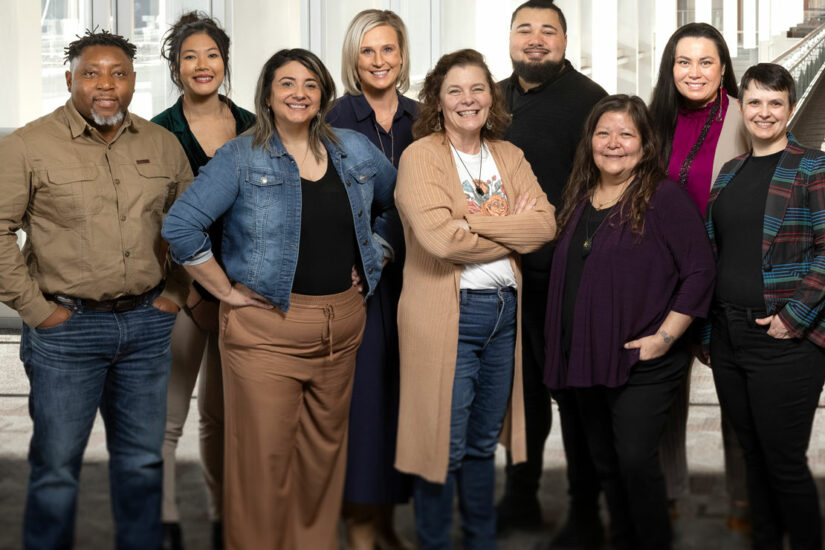
Where Passion Meets Purpose
2024-25 Initiators Fellows are leveraging lived experiences to drive meaningful social change
By Andy Steiner and Suzy Frisch | Photos by Paul Middlestaedt
The nine Greater Minnesotans selected for the 2024-2025 Initiators Fellowship are a rare breed: entrepreneurs who aspire to create businesses that bring positive social and environmental change to their communities and the state.
Greater Minnesota has its share of socially conscious entrepreneurs, said Christine Metzo, Initiators Fellowship program manager. With the Initiators Fellowship, it’s more about intentionality: Creating this kind of business or nonprofit takes special commitment, focus and resources. For rural social entrepreneurs willing to put everything on the line to start their enterprise, it can be a passion-fueled gamble.
“Small business owners know they have to put their heart and soul into their business to get it to take off—sometimes even foregoing a salary to get their dreams up and running,” Metzo said. “In rural areas, this can feel like a much bigger risk.”
Every other year, Metzo, her Initiative Foundation colleagues and representatives from three other Minnesota Initiative Foundations—Northwest Minnesota Foundation, Southwest Initiative Foundation and West Central Initiative—have the challenge of finding the business- and nonprofit-builders across 53 counties and six Native nations who are best suited to participate in the two-year Initiators Fellowship program. While many apply—there were nearly 100 applicants during the recruitment period for the 2024-2025 class of Fellows—just nine from across the participating regions were selected.
While most business owners aim to create jobs, and many donate to charity, social entrepreneurs build their enterprise with social impact at the core of their business or nonprofit plan. The Fellowship’s two-year, $60,000 stipend, combined with specialized mentorship and cohort support, is designed to help social entrepreneurs put their dream-building within reach.
“When you are a social entrepreneur, it can be a bigger risk because your approach is different,” Metzo said. “These ventures are where profit and purpose meet. Through the Initiators Fellowship, we try to mitigate the risk by offering a stipend and wrap-around support that allows people to say, ‘I am throwing myself into this. I’m going to make it happen.’”
From a farmer bringing native African greens to the marketplace to an entrepreneur creating custom headwear to conceal monitoring wires while building epilepsy awareness, the field of nine for the 2024-2025 Initiators Fellowship cohort is passionately focused on solving problems they’ve seen up close.
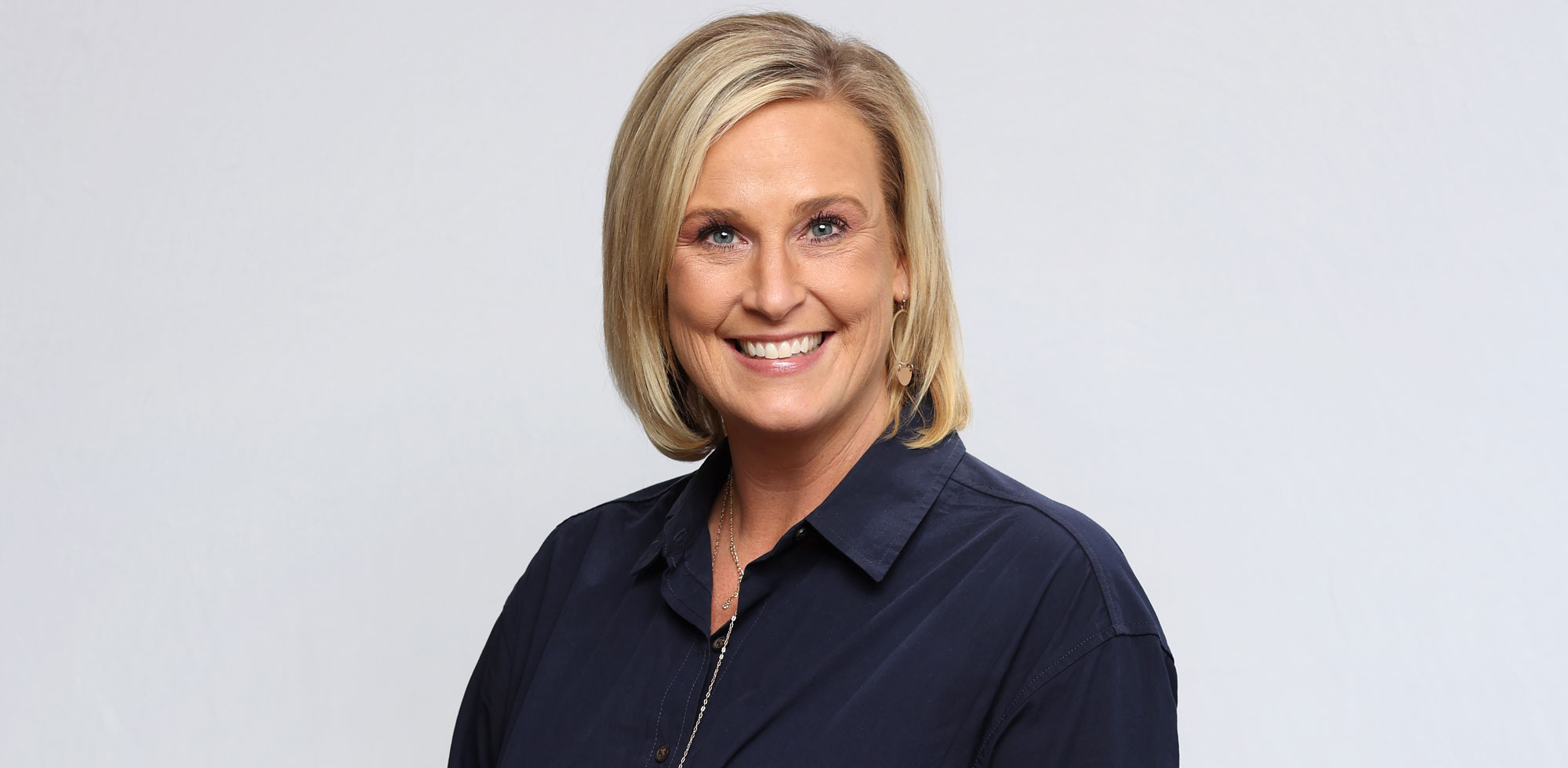
Staci Allmaras
COMMUNITY: Pelican Rapids
Staci’s Fellowship is supported by West Central Initiative.
Connecting and Supporting Youth, Community
Staci Allmaras was alarmed when she reviewed results from the most recent triennial Minnesota Student Survey reporting the attitudes, beliefs and challenges of middle-school and high-school kids. She saw that many young people feel disconnected from their communities and unsupported by adults. As a mom and lifelong educator in west central Minnesota, Allmaras wasn’t about to let that stand.
She started bringing together young people from Pelican Rapids in 2022 to see if the survey results aligned with their experiences. Allmaras also wanted to gauge their interest in working together on solutions. The overriding sentiment was that the teens felt disengaged from their hometown with few places to gather and call their own.
“When young people feel they have a voice and a place to go for belonging, everyone feels better,” Allmaras said. “Young people who feel valued and included increase their engagement in the community. In rural communities, you want folks to come back and build these communities. If young people don’t see themselves and have a voice in it now, how do they see themselves as adults in the community?”
Allmaras, an education specialist with the Lakes Country Service Cooperative in Fergus Falls, committed her free time to uniting youth who want to raise their voices in the community. By fall of 2022, the group had named themselves The Youths_PR with the motto, “Nothing About Us Without Us.”
The teens began planning and hosting events to bring area youth together. They went bowling, held a movie night, helped out with crafts and activities at a fall festival, and more, gathering about 15 to 20 teens each time. Yet they didn’t have a place to call their own.
In 2023, The Youths_PR got good news when a church donated its centrally located building to the community. The structure, now named The Bridge Center, will need renovations. Allmaras hopes that by fall it will provide space for the group. It also will have a gathering place for seniors, other community rooms, and a commercial kitchen. The teens have big plans, including using their basement area for book clubs, live music, playing pingpong, or watching movies.
Allmaras also has been working to open doors for young people to engage in community leadership, including bringing teens to a City Council meeting. It exposed them to opportunities to make their voices heard, perhaps by starting a youth advisory group that shares input with the city, school board, or community groups. In addition, she took a group of students to a youth policy forum at the State Capitol, demonstrating how young people can use their voices to contribute to positive change.
Meanwhile, Allmaras reached out to Twin Cities nonprofits focused on youth development. Team members came to Pelican Rapids to share their knowledge and experience with The Youths_PR. Through the Initiators Fellowship, Allmaras aims to build out the infrastructure and support that will allow The Youths_PR to flourish far into the future.
“My hope and long-term vision is that we have this sustainable youth center and organization in Pelican Rapids with a physical space that is shared across generations and cultures,” Allmaras said. “Young people will have ownership in it and feel included. I want them to believe in themselves as leaders and the community to see them as leaders.”
Above all, Allmaras believes the organization will serve as a model for youth engagement and utilizing young people’s voices in community building and decision-making. Perhaps, she said, other rural cities and towns will look to Pelican Rapids as a model for supporting and encouraging teens. She added, “We’ve built a coalition of people who support this vision and young people who have come together to join the efforts.”
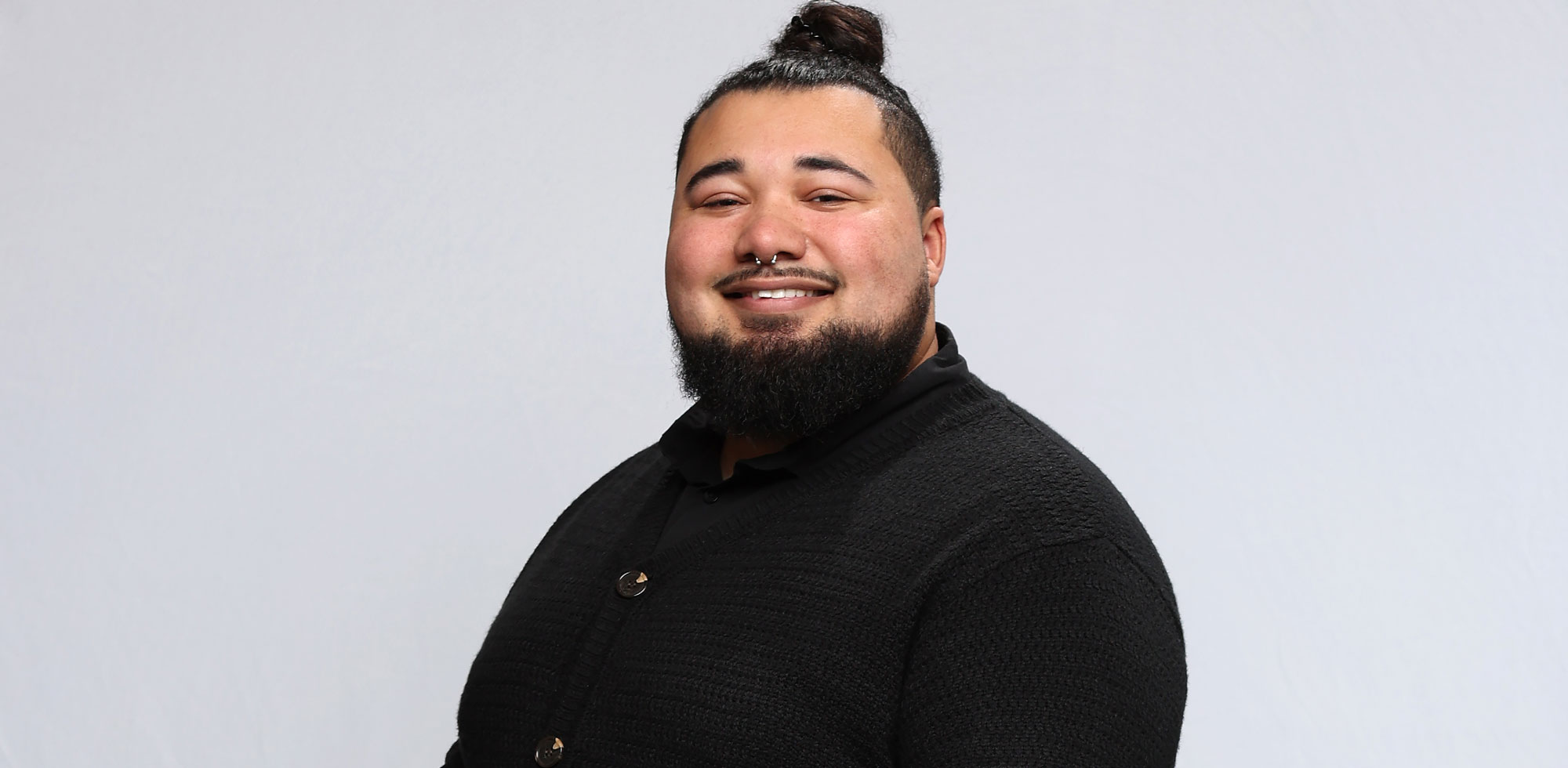
Ben Cahill
COMMUNITY: Bemidji
Ben’s Fellowship is supported by Northwest Minnesota Foundation.
Taking Pride in Creating a Support Network
Growing up in a small town in Washington State, Ben Cahill often felt isolated and alone.
“I grew up in a very conservative family in a very conservative, white town,” he said. Though his hometown was just 40 minutes outside of Seattle, it might as well have been light years away for the young, gay Black man adopted into a white family. “It seemed like there was no one like me anywhere nearby, and no one who wanted to support me,” he said. “I knew I needed to get away.”
Cahill’s decision to move in search of a more supportive community led him, in a roundabout way, to Fargo, N.D., and then eventually to Bemidji, where his then-partner relocated for a job.
“I was very reluctant to make the move,” Cahill said. “I thought, ‘Why would I move to the middle of nowhere?’” But his attitude soon changed. “After I was here for a time, I realized there is a tight-knit community of people who want to do better and be better.”
Cahill now calls Bemidji his home. After stints with several healthcare facilities as a community health worker, Cahill now applies his skills at a youth crisis shelter for the Red Lake Nation.
When Bemidji held its first Pride Festival, Cahill, a major booster, staffed a community support and information booth at the event. It didn’t take too long to realize that LGBTQIA2S+ (lesbian, gay, bisexual, transgender, queer, intersex, asexual and two-spirit) people in the region needed more than he could offer. Many came to the booth with questions that Cahill and his colleagues simply couldn’t answer. “People were reaching out, looking for support,” he recalled. “We had no idea what to do. We didn’t know anything about what was out there.”
With his festival experience as his inspiration, Cahill put together something he calls Pride Support Network, an organization he hoped would offer information about every avenue of support that members of the region’s queer community could ever need.
Pride Support Network has since expanded to offer a range of services, including outreach, resource referrals and programming. Cahill also leverages his community health worker skills to help people navigate the healthcare system and get connected with affirming doctors and therapists.
“My goal with the Fellowship is to not only create infrastructure for my social enterprise,” Cahill said, “but also to deploy additional community health workers, specifically to work with LGBTQ2S+ community members.”
Pride Support Network shares space with other nonprofit organizations in the Rail River Folk School, which runs out of a former agricultural warehouse in Bemidji. Community members can gather for meals, events and movie nights. The organization’s presence at Rail River Folk School has brought visibility to the community. “It’s hard for individuals to feel like they have community if there isn’t a space for them to gather and be a community,” Cahill said.
As a member of the 2024-2025 Initiators Fellowship, Cahill looks forward to having the support of a group of social entrepreneur peers plus an experienced mentor to help him guide Pride Support Network into the future. And having some financial support won’t hurt, either.
“I’ve been doing this stuff for the last two years without getting compensated,” Cahill said. “That’s OK, because it is my dream. But this extra support will help make it a reality.”
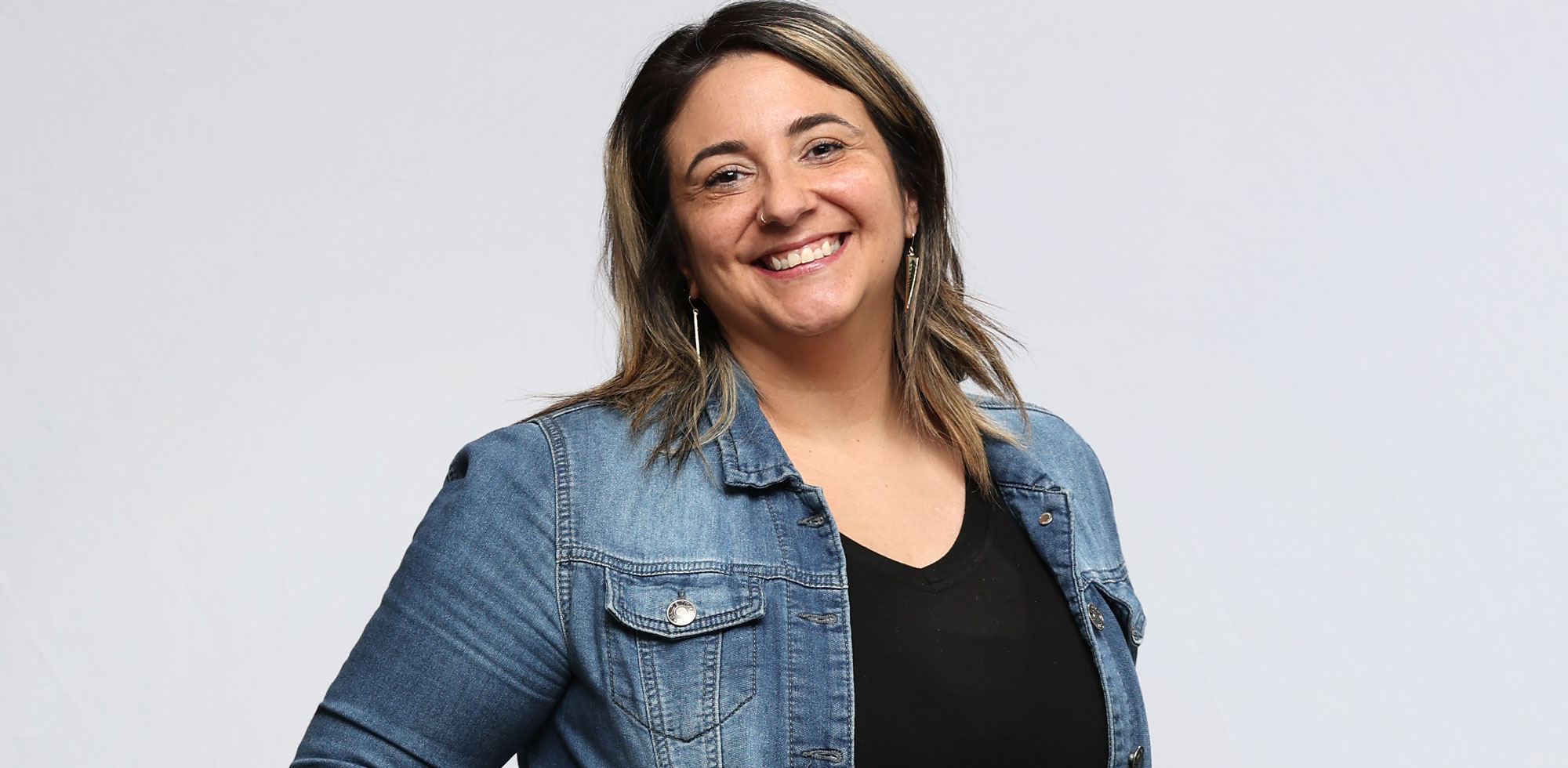
Lisa Finck
COMMUNITY: Verndale
Lisa’s Fellowship is supported by the Initiative Foundation.
Empathy, Action Elevate Epilepsy Awareness
Call it mother’s intuition or the innate knowledge of a parent of five. Lisa Finck knew something was wrong with her 7-week-old infant when her daughter froze for about 10 seconds. In just a couple of days, Finck’s daughter Espen would be diagnosed with tuberous sclerosis complex, the leading genetic cause of epilepsy and autism.
Her daughter’s seizures and medical condition led to myriad hospital visits over the years, plus significant time spent undergoing electroencephalogram (EEG) monitoring. EEG testing is a critical way to assess the type of seizures someone is having and where in the brain they are occurring. During the EEG, electrodes and wires are attached to the person’s head, often for hours and sometimes for days at a time. Finck often would playfully call the cluster of wires, covered with gauze and cloth, her daughter’s princess rainbow hair.
Sitting with Espen in the hospital, Finck had an idea. She could create and sell hats in different fun patterns for people of all ages to wear over their EEG wires. It would be a way for Finck to help support her family after she shifted from working in health care to being a stay-at-home mom.
Finck put her business plans on hold as she devoted herself to her daughter’s care. But in late 2022 she was ready to give it a go, launching Rainbow Hair Hats in Verndale. She ramped up with a fundraiser that would back her as she designed and created hats to donate to children’s hospitals. Requesting feedback from customers, she used their input and enthusiastic reviews to continue developing the hats.
To grow Rainbow Hair Hats, Finck plans to operate a model where her company supplies nonprofits and hospitals with the hats wholesale. They can then give hats to their clients or patients, or perhaps sell them in the gift shop. She appreciates receiving the Initiators Fellowship to help her with all of the business details and planning—areas that are entirely new to her.
While Rainbow Hair Hats works to solve one need for people undergoing neurological testing, it also will bring fun to sometimes stressful and scary medical situations. Such a gesture goes a long way toward supporting individuals and families through the tough days. “After seeing my daughter wear her hat and how happy she was, we want everyone to feel that way. I don’t want people to feel like they are defined by epilepsy or that it runs their life,” Finck said. “I really want to give families a way to breathe a little bit, even though things are hard and their loved one is struggling. This gives them a way to be a bit silly and make their child feel unique.”
Finck aims to forge new ground in other ways, too. She and her family experienced many dark days when they learned of Espen’s diagnosis and adjusted to her different path in life. But with support and resources, Finck eventually saw that their experience could be used for good. She plans to create community spaces and supports for families that have been touched by epilepsy. That might include raising awareness of the condition and teaching others how to help someone having a seizure.
“I couldn’t sit in the negative forever—I have not been given this situation for nothing. I had a feeling that there was a purpose for this,” Finck said. “I always say that your greatest quality isn’t fitting in, it’s being yourself. Because the world only has one you, and you can only offer what you have. And you can still change the world. I always said that about Espen—that she can change the world.”
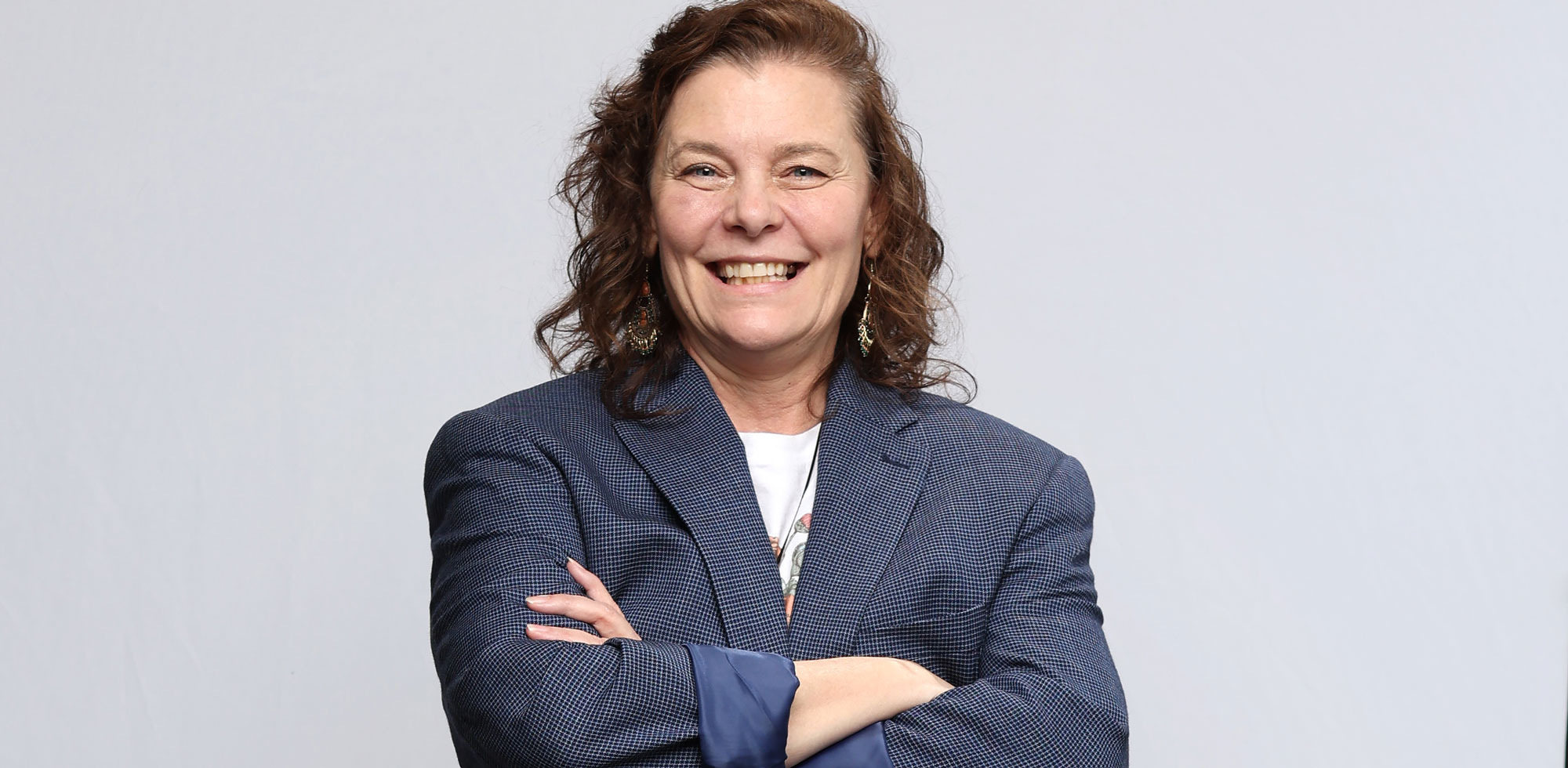
Dawn Finn
COMMUNITY: Pelican Rapids
Dawn’s Fellowship is supported by West Central Initiative.
A Community Approach to Fighting Addiction
Dawn Finn knows more than most about the devastation that can be wrought by addiction and mental illness. She struggled with substance abuse for years before finally becoming sober three decades ago. And then, in 2023, her own life was cracked apart when her son, who also fought addiction, died by suicide.
“What that did for me was really solidify and deepen my resolve to make something happen,” Finn said. “If he had peer support, had a place to talk to someone who had gotten off meth or whatever he was struggling with, he might have survived.”
Inspired by her personal tragedy, Finn, who was already working for Welcome Place, a church-based program that provided free meals and conversation for community members, deepened her resolve. She vowed to help people navigate social and healthcare systems and to provide even more peer support for mental health and addiction issues. The organization remade itself, and today operates as Community & Life Services, an independent nonprofit.
The shift felt organic and needed, and was supported by all involved. “What they found was that more people needed mental health services than what a parish nurse can provide,” Finn said.
Addiction and mental illness are rampant in our communities—and across the nation. “Twenty-one million Americans suffer from an addiction,” Finn said, “but only a population the size of Duluth is getting and seeking help. The truth is, most people don’t know how to get help.”
She hopes her nonprofit will help people in her community and the wider region understand how to access the support they need to start their path to recovery. With the right kind of non-judgmental support, she said, many will be able to take that needed next step.
A central element of Community & Life Services is to provide peer recovery support services and to help others gain support specialist training and certification. Finn believes this unique approach—to provide one-on-one coaching and deep listening from an expanding pool of trained professionals with shared life experiences—can be a key part of an individual’s healing.
Though her organization is already up and running, Finn knows more work needs to be done to keep it healthy and active. And she’s relying on her time in the 2024-2025 Initiators Fellowship to mold and shape the organization’s path forward.
“The whole process really makes you think through it,” Finn said. “It is not, ‘You write the grant and you are accepted.’ You have an interview. You have to know what you are doing. I had to do a pitch. You really need to get clear, ‘Where am I going? What is the goal?’”
Finn appreciates the mentorship, the opportunity to deepen her community connections, and the annual stipend that the Fellowship provides. “I don’t have to worry about trying to make an income now,” Finn said. “Now I can really focus … and grow.” Finn plans to harness the energy she gains from the Fellowship and its opportunities to support her burgeoning nonprofit and its clientele.
“If I could help another mother or father not have to feel what I am feeling, I want to be able to do that,” she said. “I don’t want other people to struggle with addiction like I did. I don’t want another son or daughter to kill themselves because of their use. I don’t want the pain of the death of a child to have to motivate other people.”
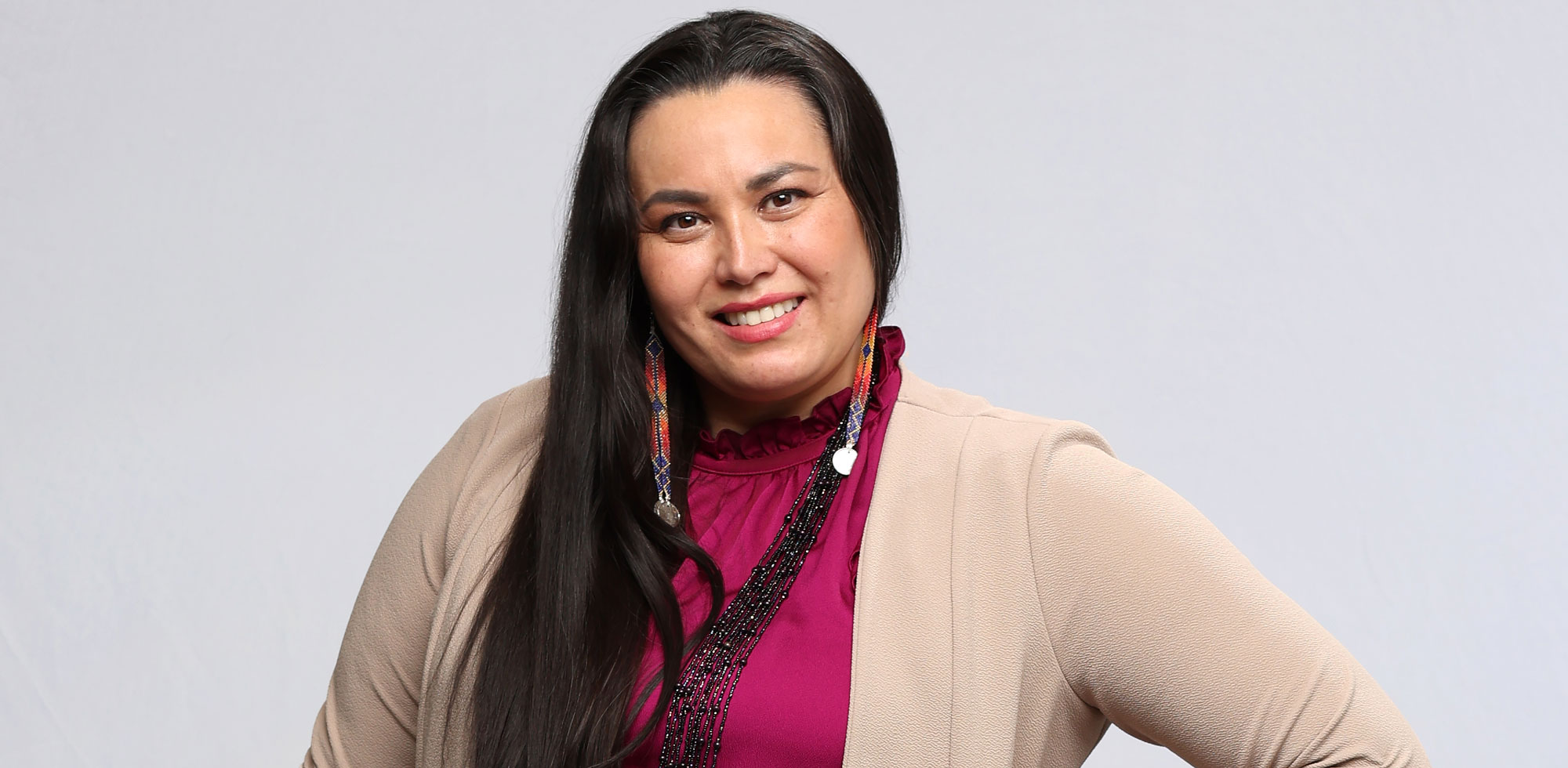
Jill Greendeer
COMMUNITY: St. Michael
Jill’s Fellowship is supported by the Initiative Foundation.
An Advocate for Indigenous Data Sovereignty
For generations, Native people have demanded the sole right to the artifacts, customs, land, language and ways that were stripped away as westward expansion overtook North America.
During her time in the Initiators Fellowship, Jill Greendeer, an enrolled member of Wisconsin’s Ho-chunk Nation who makes her home in St. Michael, wants to add Indigenous data sovereignty to the conversation by advocating for the authority to administer the collection, ownership and application of Native data.
“It is not just technology, what the white, mainstream perspective thinks about as data,” Greendeer said. “For us, it is so much more. It is our voice, our perspective, our history, our stories. It is our language, our artifacts, our cultural songs, our kinship stories, our shared experience through boarding schools.”
When Native people have full sovereignty over their data, Greendeer said, a reclamation of Native culture and heritage can be more fully realized. “Our narratives have been exploited and capitalized on by people who have no business doing what they are doing,” she said. “It is done from a perspective that is not our own. Our perspective on our history is the true perspective.”
Greendeer’s social enterprise venture, Indigenous Visions Research and Wellness, LLC, would guide the constraints of research on tribal lands through independent and Native-run review boards. The effort would include education, training, protocols, and ethical and diverse community considerations.
“My social justice enterprise is about finding empowerment and healing through Indigenous data sovereignty,” Greendeer explained. Through her advocacy work, she said, Native communities can assert their rights. “We are independent from the U.S. government. We have our own governance system, our own voting systems. This is ours, and those who want to study our history or our culture need to seek our permission first.”
Initiators Fellows are matched with mentors, experts with deep knowledge in their specific area of interest. Greendeer is enthusiastic about working with her mentor, Stephanie Russo Carroll, associate director of the University of Arizona Native Nations Institute.
“She is on the cutting edge,” Greendeer said. “She is not just empowering but also healing, too. She has a network established and she has been gracious in bringing me on.”
Along with growing Indigenous Visions Research and Wellness, LLC, Greendeer will use her time as a Fellow to focus on planning and contact building. The generous two-year stipend makes it possible for her to dedicate the time needed to turn her dream into a full-time reality.
“By the end of the two years, I will have enough contracts to pay for my living and get revenue coming into my business,” Greendeer said. “The rest will be about telling the real truth, and owning our Native realities so we can guide our healing, our empowerment and our stories.”
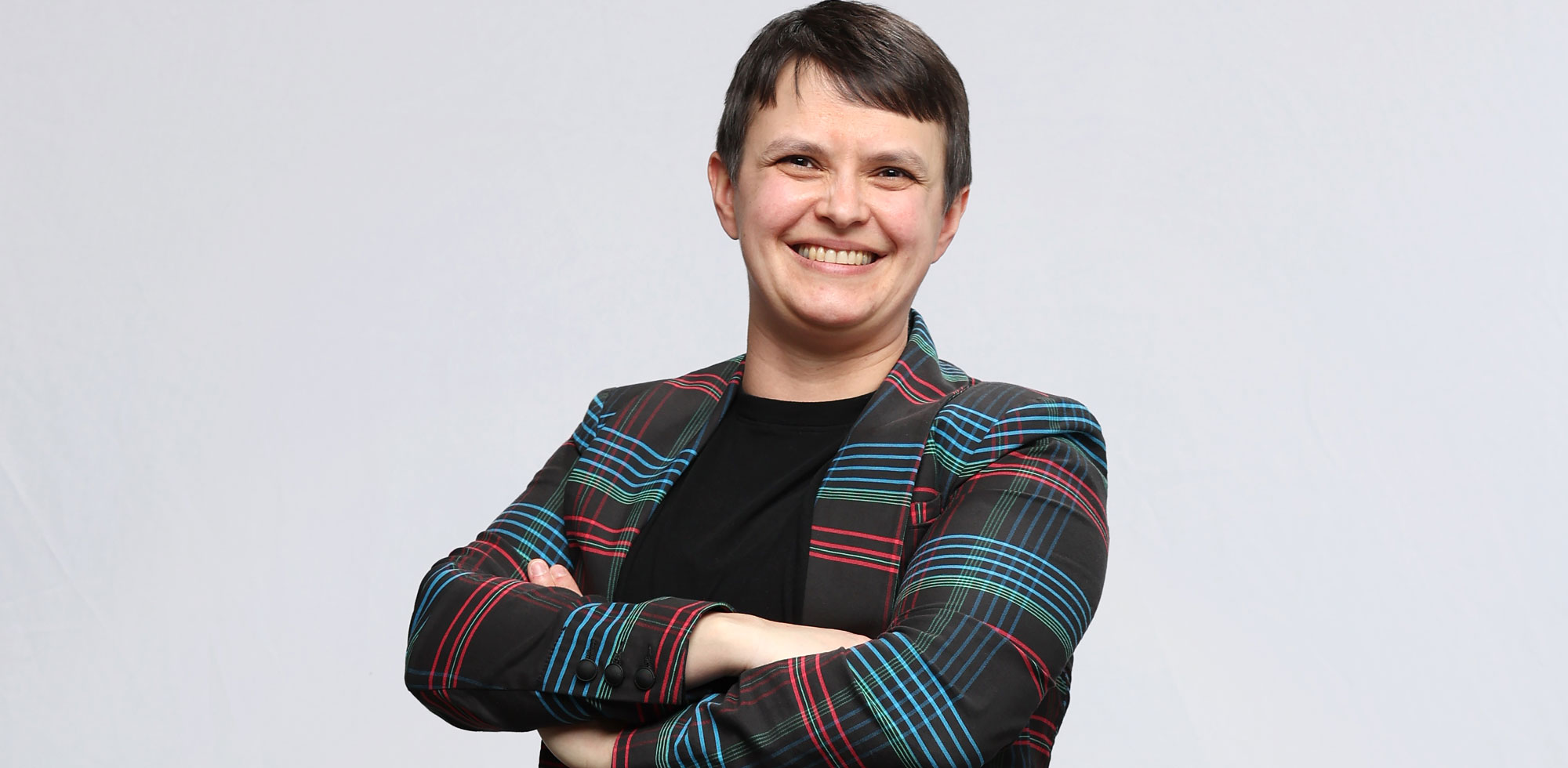
Shannon Murray
COMMUNITY: Bemidji
Shannon’s Fellowship is supported by Northwest Minnesota Foundation.
A Place and Space for Everyone
Shannon Murray believes in fairness and equity and is convinced there’s a solution to live up to that ideal. Murray’s project, a nonprofit called Lead for Inclusion, will focus on increasing employment and social opportunities for people with intellectual and developmental disabilities.
A proud Bemidji resident, Murray was inspired to start Lead for Inclusion following interactions with people throughout town, through their work as a substitute school teacher, and through connections with friends and family. “We have amazing young leaders in the Bemidji area who are successfully transforming their schools into communities of belonging where students of all abilities are true collaborators, advocates and friends,” said Murray, who uses they/them pronouns.
As students graduate and transition into the larger community, however, their opportunities for continued community connections are diminished.
“I’ve discovered there are so many awesome folks in my community who are really underestimated and whose needs aren’t being met,” Murray said. “Through personal relationships and caring about people who live in my community, through wanting them to have—like everybody else—a sense of being part of this community, I decided I wanted to start my nonprofit.”
Murray’s friend, John, exemplifies the Lead for Inclusion mission. Today, John is a paraprofessional at Bemidji High School. But finding work that connected with his skill set was fraught with obstacles. “He has low vision and had been trying to find meaningful work in town with not a lot of success,” Murray said. Low vision is vision loss that cannot be corrected with glasses, contacts or surgery. After working as an intern for an inclusive Bemidji High School physical education class, John landed his paraprofessional job. Because someone looked beyond his disability and offered him a position, John has been “able to showcase that he can do it,” they said. “He’s such a good para. It’s amazing!”
Murray’s nonprofit will work to create opportunities for young people so they can connect, contribute and shine, just like John has. “I’ve seen great things come out of that inclusive space,” they said. Outside of the school system, though, opportunities for young people with intellectual and developmental disabilities are limited. “I want to create inclusive youth development opportunities. I want to work with youth to build the bridge that elevates and supports young leaders of diverse abilities.”
Murray’s commitment to build the nonprofit in Bemidji will likely introduce challenges that may not be encountered in larger urban areas. “Transportation is a huge barrier,” Murray said. “If you live in a larger metropolitan area, there are a lot more ways to get around. If you are disabled and live in a more isolated space, it can be harder to get from point A to point B.”
Still, there are countless benefits to working in Greater Minnesota. “Smaller towns have strengths that translate into community-wide work,” Murray said. “People support each other. They want you to succeed.” Murray’s nonprofit will focus on job-skills training, professional development, education and outreach, and building social opportunities for participants. “I think doing inclusive work that centers on youth is an important way to make social change,”
Murray said. With a little work, they added, “I think we can make life better for so many people. The ultimate goal is for inclusion to become the norm for everyone, everywhere in my community.”
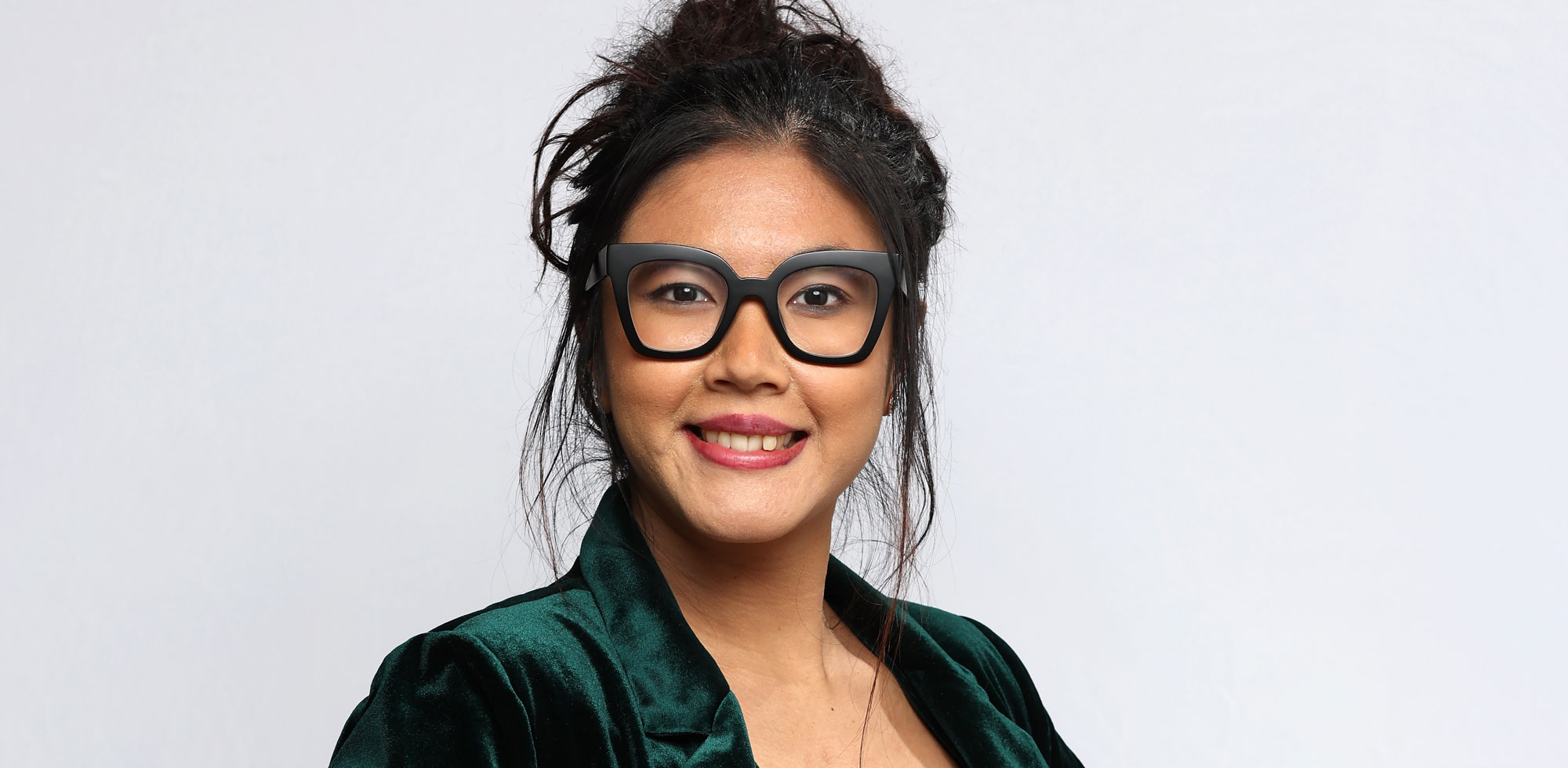
Suree Sompamitwong
COMMUNITY: Worthington
Suree’s Fellowship is supported by the Southwest Initiative Foundation.
A Creative Approach to Healing
As a student, Suree Sompamitwong found herself gravitating regularly to the art room at Minnesota West Community and Technical College. Spending time painting and sculpting provided her with a creative outlet and sense of community while putting her mind at ease. The experience—and her own struggles with bipolar disorder—gave Sompamitwong an idea: She wanted to help people of all ages and abilities thrive through creativity.
She started Creative Healing Space in late 2019. Sompamitwong strives to bring people together through creative expression while supporting their mental health and wellness. To get started, Sompamitwong sold her own artwork and held community fundraisers in her town of Worthington to generate seed money.
Creative Healing Space began holding events, including mask-making, painting, creative writing, and open mic sessions. But Sompamitwong had to pivot when the pandemic paused in-person events. She found new ways to bring art and healing to people in the Worthington area. The organization hired a Sioux Falls art therapist to offer virtual sessions and brought on instructors to teach various art forms. Before long, word spread online and people from around the world joined in.
Sompamitwong had plenty on her plate while getting Creative Healing Space off the ground. She finished her degree in sociology from Southwest Minnesota State University, then started a full-time job as an employment specialist advising youth. She was driven by her goal to provide opportunities for healing where people feel supported no matter what difficulties they face.
“When I would do art in college, I would hear from people how art has been a saving grace for them. I recognized my own journey and how art has really helped me,” said Sompamitwong, who was working in fashion in California when she got her bipolar diagnosis. She returned home to Worthington to tend to her health and be among family. “I thought it could be really beneficial for people. They might not realize it if they haven’t been exposed to art. I want to be able to offer that exposure.”
Creative Healing Space works to get people of all ages involved in the arts. It offers community events, such as comic book workshops, mural making, fashion shows, and family art nights. In addition, it regularly hosts workshops for people to engage in music, dance, drum circles, photography, sculpting, and collage—any creative outlet that nurtures the body, mind, and spirit.
Sompamitwong has been successful at securing grants that allow Creative Healing Space to provide events and classes for free. The backing also has given the organization freedom to evolve. Over time, it added play therapy for at-risk youth and often provides children’s creative activities tables at Worthington’s many festivals and events.
Its Destination Art program brings creativity to schools, senior centers, and organizations, while its Educator Wellness program helps educators connect and decompress through creative activities. “Right now, we’re learning what works and doing pilot programs,” Sompamitwong said. “We want to cater to their needs and do what we can.”
Long-term, Sompamitwong envisions that Creative Healing Space will foster a well-connected community that thrives through the arts. Recently, the organization launched Creative Sparks Scholarships—three $4,000 awards that will allow people ages 16 to 24 living in the region to share their creativity and talents. It could be anything from music and mosaics to installations.
The Initiators Fellowship will help Sompamitwong continue scaling the organization’s existing programs and try new approaches. One idea is to offer creative healing workshops to companies as an employee benefit, which would bring in revenue while using the arts to promote wellness. “I’m trying to develop my business model and get connected with mentors to try to figure it all out,” she said. “That’s why this Fellowship is catalytic for me.”
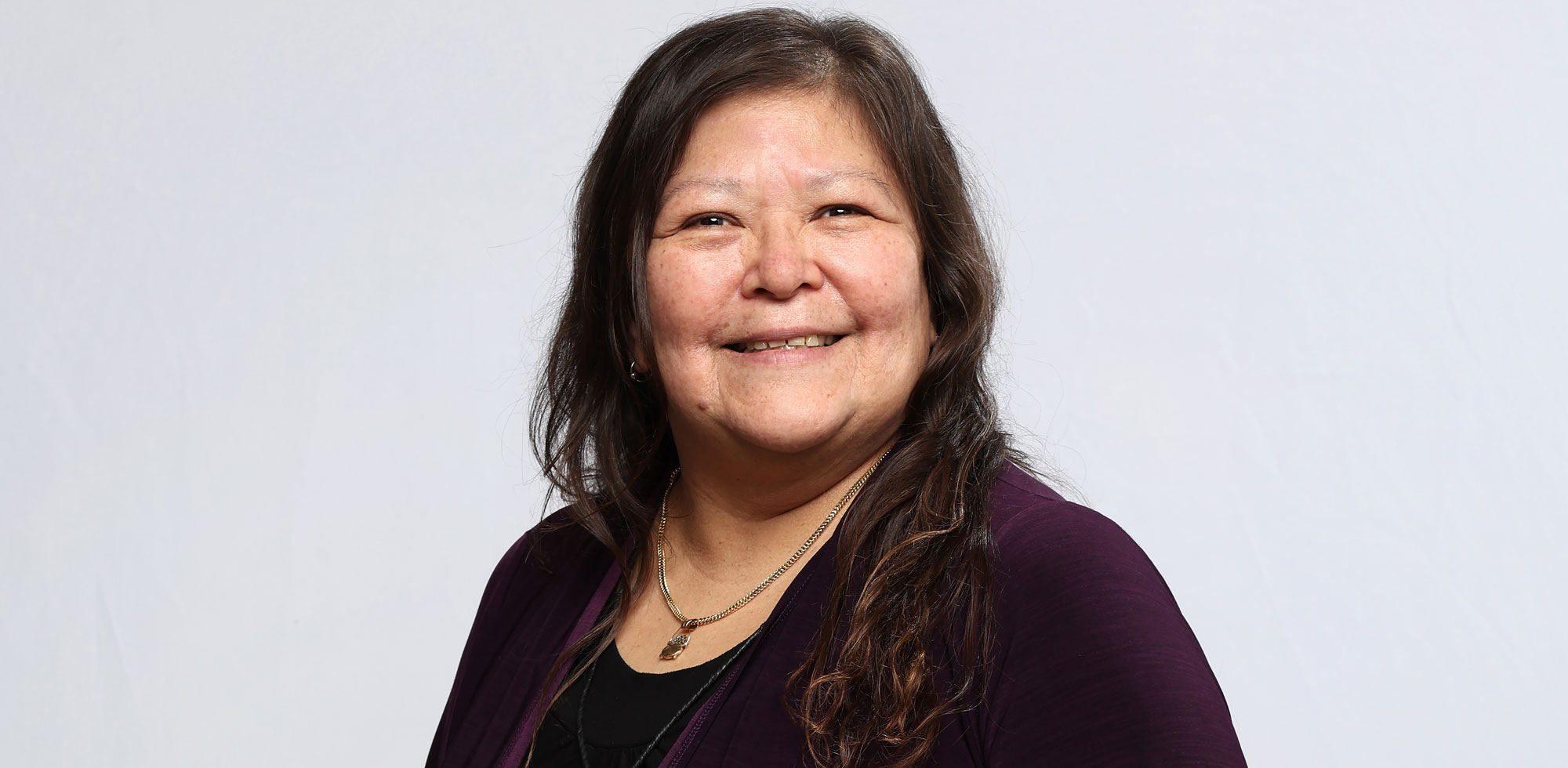
Wanetta Thompson
COMMUNITY: Hinckley
Wanetta’s Fellowship is supported by the Initiative Foundation.
Nurturing Native Creativity and Community Connections
Wanetta Thompson saw abundant and abiding pain in her community and wanted to do something to promote healing. Joining with her friend, Lana Oswaldson, and daughter, Laikora, Thompson developed the idea to forge connections between people with Indigenous art at the heart of her endeavor.
The trio is now providing cultural art education to all community members with a two-part mission: to address generational trauma affecting Native American people, and to ease tensions in the Mille Lacs area between tribal and county residents.
To further their goals, Thompson and her team successfully applied for and received a Blandin Foundation grant in late 2022. They’re now using the award to offer free classes called Maada’oonidiwag (meaning shared knowledge) and to pay master artisans to teach the courses.
“Our goal is to build connections and teach about our history and culture. I think that builds understanding,” Thompson said. “We have so much talent in our community—so many people who know how to do so many things. It was easy to find the talent to do what we needed to do. And everyone wanted to share their knowledge.”
In May 2023, the team launched its first round of classes at community centers in Hinckley, Onamia, and McGregor. Thompson, a Hinckley resident and member of the Mille Lacs Band of Ojibwe, wasn’t sure if Maada’oonidiwag would be compelling. Yet demand was steady from the start for classes in making hand-painted leather belts and beaded earrings. As the year went on, instructors taught people to create ribbon skirts, pucker-toe moccasins, drums and drumsticks, nine-block blankets, and more.
With their early success, the team formed Bear Paws Cultural Art, a nonprofit based in Brook Park. Along with her adult daughters Laikora, Kyrah, and Tourrie, and her sister, Raenelle Weyaus, Thompson continues to develop the organization. It’s a family affair, with Thompson’s husband, Anton, hauling sewing machines and tools to classes and doing prep work. Kyrah Thompson, a chef, makes food to nourish students while they nurture their creativity.
Healing will continue to be Bear Paws’ focus, aiming to address the generational trauma that is still being felt from the boarding school era, when children were removed from their families, homes, and cultures. Thompson draws a direct line between those wounds and the opioid crisis that is deeply affecting the Native American community. She lost two sisters to complications of opioid abuse.
“We want to bring back the culture to heal our community,” Thompson said. “And then everyone who went to the class can teach other people, and that’s the ripple effect that I want to happen. I want this to be bigger than we are.”
Thompson also believes that art is a powerful way to build relationships and understanding. A goal of Bear Paws is to eliminate prejudice and discrimination by bringing communities together—especially those in Aitkin, Mille Lacs, and Pine Counties—to learn about Native American history and engage in artwork.
People from across the region have attended classes, including a non-Native family who had a ball making drums, and a mother and daughter who bonded over creating ribbon skirts. “It’s not just the Native community that is benefitting,” Thompson said. “It’s about building connections and building understanding.”
Bear Paws has a long list of art forms to highlight. Community members and elders came up with 60 practices that people want to learn or enhance. “What’s most important is sharing the knowledge,” Thompson said. “That builds understanding and ensures that our culture continues.”
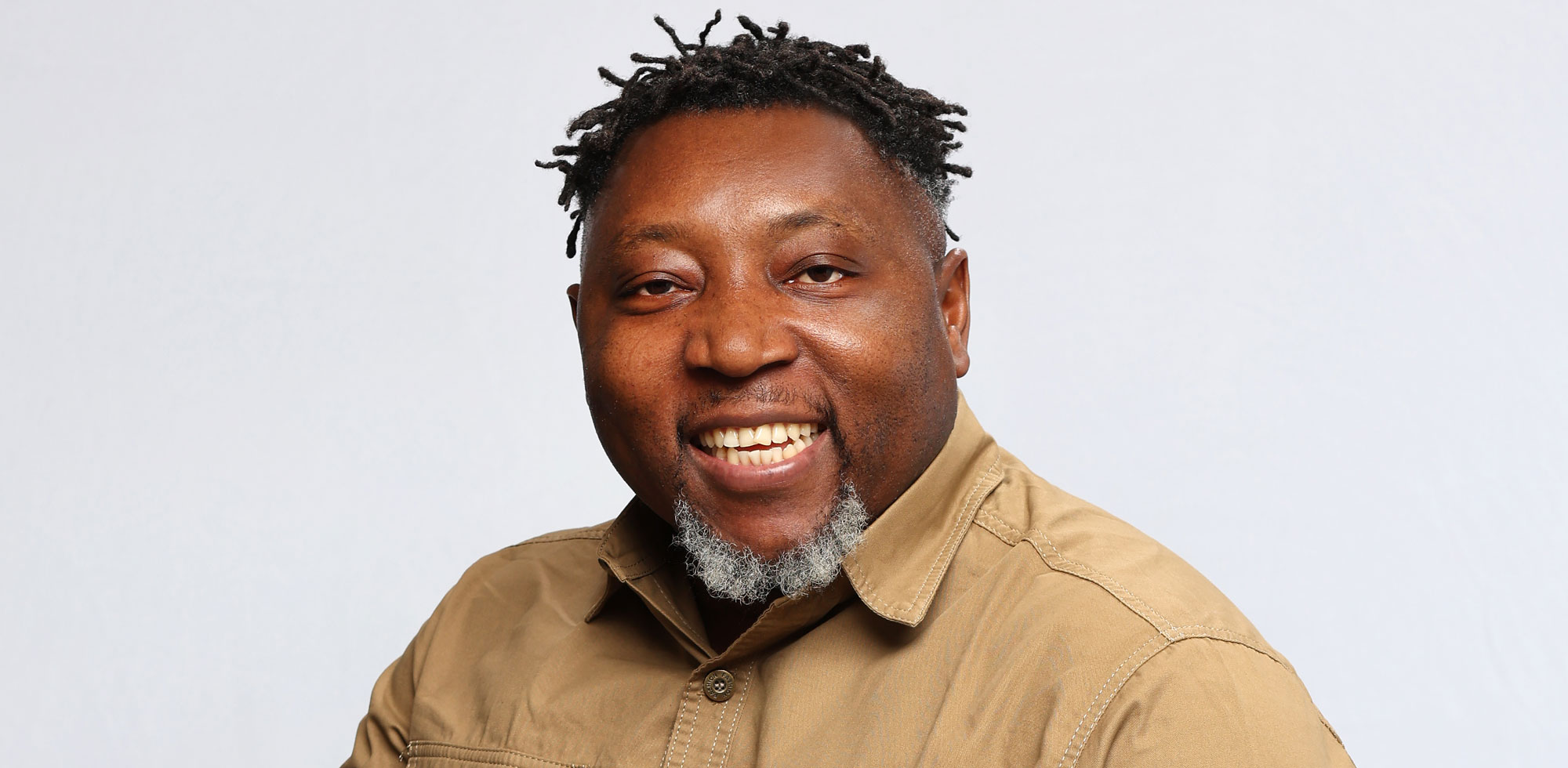
Funwi Tita
COMMUNITY: Buffalo
Funwi’s Fellowship is supported by the Initiative Foundation.
A Taste of Home for African Communities
Cravings for a taste of home led Funwi Tita to start growing African vegetables on his Minnesota land. Soon friends, family, and community members caught wind of his delicious bounty and demonstrated that they would travel far and wide to buy the organic produce.
Tita and his wife, Jennet, started growing vegetables in 2008. They quickly developed a market for produce like water leaf, bitter leaf, and garden eggs that are staples of many African cuisines. In 2016, they formed the company Better Greens, LLC, to build on their passion for growing food from home, paired with a deeper purpose. Not only would Better Greens provide reliable access to culturally relevant produce, it also would contribute to efforts to reduce hunger. Visit bettergreensllc.com to learn more.
“I’d like to see Better Greens become a leader in growing, processing and distributing ethnic African vegetables. We want to make these vegetables a household, consumable vegetable not just for Africans but for everybody,” Tita said. “A big part of our business model will be education to create information and awareness about these very delicious, nutritious vegetables we’re growing and to be at the forefront of getting these products around the country.”
Originally from Cameroon, Tita came to the United States for college and embarked on a career in business administration. Yet his agricultural roots run deep. Tita grew up on a dairy farm, where he helped his parents tend to large vegetable crops and a 40-head herd. Working alongside his family, being in the fields, and growing life-sustaining food all were passions that Tita wanted to import to Minnesota and share with his children. “Farming shaped me, my character, and my values that are guiding me now,” he said.
Over time, Better Greens expanded to the Titas’ four-acre property plus another eight acres that they farm nearby. There is enough demand for the company to farm 15 to 20 acres, but it’s challenging to find enough land. Eventually Tita would like to buy more acreage where Better Greens could have greenhouses and other structures to help the company expand its capacity.
The greenhouses are key to raising African produce in Minnesota, where the growing season is shorter. Currently, Better Greens pays other farmers to germinate seeds during the off-season so that the crops are ready to transplant in the spring. The company sells directly to consumers who come to the farm for pick-up. They also deliver large orders, and freeze and ship vegetables across the country.
In 2023, Tita helped start the Minnesota African Immigrant Farmers Association, uniting farmers to give them a collective voice, support, information and opportunity. Together, these farmers worked to help feed the community by selling crops wholesale to organizations like The Good Acre and the hunger-relief nonprofit Second Harvest Heartland.
Eventually Tita wants Better Greens to branch into processing and packaging its produce in a commercial facility. That will take capital and efforts to secure regulatory certifications. He aims to use the Initiators Fellowship to develop leadership skills and connect with resources and partners that he hopes will work alongside Better Greens to help it thrive.
“This all started because we wanted to eat what we ate growing up,” Tita says. “We saw the opportunity to solve a great need in the community. People really love their food, and we came to realize that this is how we maintain and grow our culture. It’s not just about food and preservation of our culture and heritage—it’s how people can remember that, and then pass it on to the next generations.”
The two-year Initiators Fellowship provides wrap-around training, mentoring and guidance, plus an annual stipend to support Fellows and their social enterprise ideas to improve Greater Minnesota communities. Learn more at fellows.greaterminnesota.net.
- TRAINING AND DEVELOPMENT
Fellows attend regular training and in-person events. The program provides each Fellow with a $5,000 allocation to fund professional development based on their unique needs. - MENTORSHIP AND CONSULTING
Each Fellow is paired with an industry mentor and business coaching and consulting to support their personal, professional and enterprise growth. Through these connections, training initiatives and other signature events, Fellows accelerate a lifetime network of advocates, colleagues and friends. - STIPEND TO SUPPORT TIME INVESTMENT
It’s the expectation of the program that Fellows dedicate 20 hours per week to develop their vision. The Fellowship compensates each Fellow with an annual stipend of $30,000.
The Initiators Fellowship is made possible by generous funders, including Granite Partners, an original founding funder and partner, along with the Bush Foundation, the McKnight Foundation and Sourcewell.